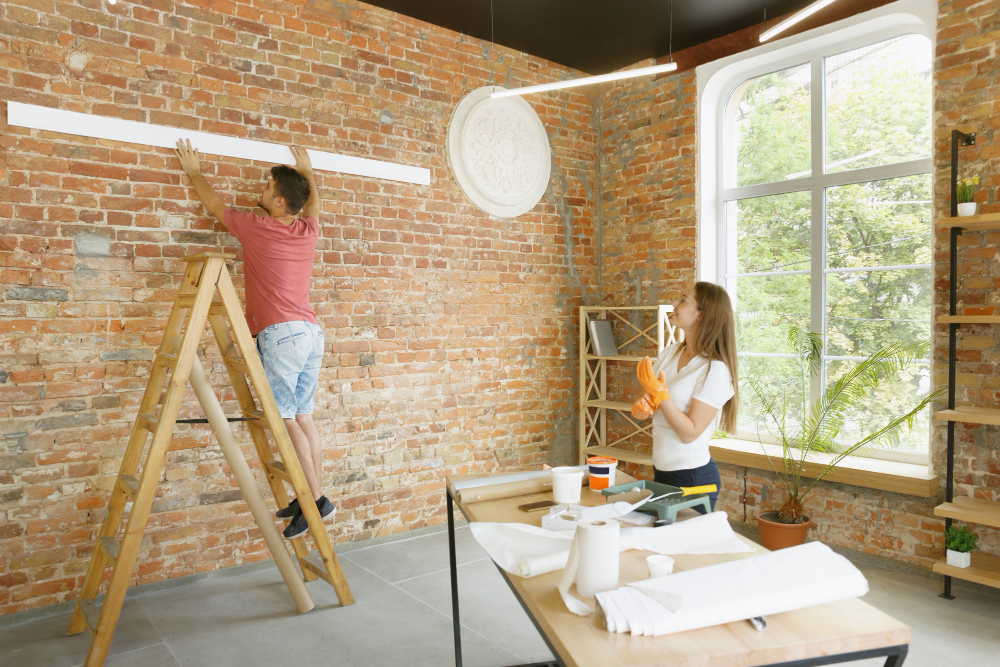In an era dominated by technological advancements, the concept of a “smart home” has transitioned from science fiction to reality. From controlling lights and thermostats remotely to monitoring home security via smartphones, smart home systems offer convenience, energy efficiency, and enhanced security. However, the decision between DIY (Do It Yourself) and professional installation remains a crucial consideration for homeowners venturing into the realm of smart home technology. Each approach has its own set of pros and cons, which must be carefully evaluated to determine the most suitable option for individual needs and preferences.
DIY Installation:
Pros:
1. Cost Savings: DIY installation typically involves purchasing smart home devices and setting them up without professional assistance, thereby eliminating installation fees. Homeowners can save a significant amount of money by bypassing labor costs associated with professional installation services.
2. Flexibility and Control: DIY enthusiasts appreciate the freedom to choose specific smart home products and configure them according to their preferences. This approach allows for customization and flexibility in tailoring the system to suit unique requirements.
3. Learning Experience: Installing a smart home system DIY-style can serve as a valuable learning experience. It provides an opportunity to gain hands-on knowledge about the technology, its functionalities, and troubleshooting techniques, which can be empowering for homeowners interested in technology.
4. No Scheduling Constraints: DIY installation eliminates the need to coordinate schedules with professional installers. Homeowners can proceed with the installation at their convenience, without waiting for appointments or dealing with potential delays.
Cons:
1. Complexity and Technical Challenges: DIY installation may pose challenges for individuals with limited technical expertise. Setting up intricate smart home systems, especially those involving multiple devices and integrations, could be overwhelming and lead to errors or malfunctions.
2. Time-Consuming: Installing a smart home system DIY-style often requires a considerable amount of time, especially for those unfamiliar with the technology. The process involves researching products, reading manuals, and troubleshooting issues, which can be time-consuming and frustrating.
3. Risk of Installation Errors: Without professional guidance, there’s a risk of making installation errors that could compromise the functionality and security of the smart home system. Improperly installed devices may malfunction or fail to operate optimally, leading to dissatisfaction and additional expenses for repairs or replacements.
4. Limited Warranty Coverage: Some smart home manufacturers may offer limited or no warranty coverage for DIY-installed systems. In the event of a product malfunction or damage due to improper installation, homeowners may bear the full cost of repairs or replacements.
Professional Installation:
Pros:
1. Expertise and Assurance: Professional installers possess the necessary expertise and training to install smart home systems correctly and efficiently. They can ensure that devices are set up according to manufacturer specifications, minimizing the risk of errors and maximizing system performance.
2. Time-Saving: Professional installation saves homeowners time by handling all aspects of the setup process, from device placement to system configuration. With professional installers on-site, the installation is typically completed in a fraction of the time it would take for a DIY approach.
3. Comprehensive Integration: Professional installers can seamlessly integrate various smart home devices, ensuring they work together harmoniously within the system. This comprehensive integration optimizes functionality and enhances the overall smart home experience.
4. Warranty and Support: Professional installation often comes with warranty coverage and ongoing technical support from the installation provider or manufacturer. Homeowners can rely on professional assistance in case of issues or system maintenance needs, offering peace of mind and added value.
Cons:
1. Higher Cost: Professional installation services incur additional costs compared to DIY setups. Homeowners must budget for installation fees, which can vary depending on the complexity of the system and the provider’s pricing structure.
2. Limited Control and Customization: Professional installers follow standardized procedures and may have limitations regarding customization options compared to DIY setups. Homeowners who prefer full control over their smart home configurations may find this aspect restrictive.
3. Scheduling Dependencies: Coordinating installation appointments with professional installers may require flexibility and adherence to their availability. Delays or scheduling conflicts could prolong the installation process, impacting convenience for homeowners.
4. Reliance on External Assistance: Opting for professional installation means relying on external assistance for setup and maintenance. Homeowners may feel less empowered to troubleshoot issues independently or make changes to their smart home systems without professional intervention.
The decision between DIY and professional installation for smart home systems involves weighing the pros and cons outlined above, considering factors such as budget, technical expertise, time constraints, and desired level of control. DIY installation offers cost savings, flexibility, and a learning experience but may entail technical challenges and time-consuming setup. On the other hand, professional installation provides expertise, time-saving convenience, and comprehensive support but comes with higher costs and potential limitations in customization.
Ultimately, the most suitable approach depends on individual preferences, priorities, and comfort levels with technology. Homeowners should carefully assess their needs and evaluate the trade-offs between DIY and professional installation to make an informed decision that aligns with their goals for creating a smart, efficient, and secure home environment. Whether DIY or professional, embracing smart home technology promises to enhance convenience, energy efficiency, and peace of mind for homeowners in the digital age.

